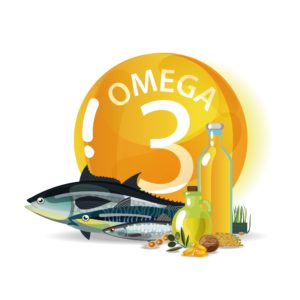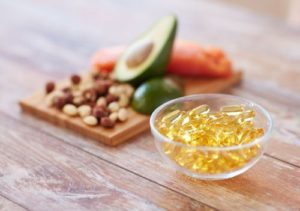

Omega-3 Fatty Acids are a valuable nutrient for a healthy pregnancy. This essential nutrient keeps your heart & brain health in general. Adequate intake of Omega-3 fats is essential for maintaining the balanced production of the hormone-like substance called Prostaglandins. Prostaglandins help regulate man important physiological functions like:
Click here to Consult The Best Pregnancy Doctors in Noida
The requirement of Omega-3 as per RDA
Pregnant women 1.4gm/day
Lactating mother 1.3gm/day
Do you want to know the "Estimated date of when your baby is due?" Check out Cloudnine's Pregnancy Due Date Calculator now!
IMPORTANT SOURCES OF OMEGA-3 FATTY ACIDS
Your body does not produce Omega-3 fatty acid, so it is important for you to get them through food.
1.Fish is an important source of Omega-3 fatty acids.
Two types of Omega-3 fatty acids found in fish are:
Oily fish such as salmon, trout, sardines, herring, and oyster offers healthy fat and high protein for you. Apart from Omega 3 fatty acids, fish also has vitamin D, B2 (riboflavin), mineral such as calcium, phosphorus, iron, zinc, iodine, magnesium & potassium which are all baby-friendly nutrients.
You Should Also Read: Why You Should Consider Food Safety During Pregnancy
2. If you are vegetarian, then it is not necessary to take fish, Omega 3 fatty acids are naturally available from plant sources as well. Vegetarian sources of Omega 3 fatty acids are Flax seeds, walnut, soybeans, and Oats etc.
Distribution of these sources in a daily diet
Ingredient Amount Omega 3 (gm)
Flax seeds 5gm(1tsp) 1.14
Walnut 10gm 0.3
Soybeans 30gm 0.6
Oats 40gm 0.56
Total 2.64

So, for vegetarians, it is not a challenge to meet the omega 3 fatty acid requirements during pregnancy. With the help of below-given tips, you can successfully include Omega-3 Fatty Acids in your meal on a regular basis:
a. Dough
b. Buttermilk
c. Dal
d. curry
a. Khichdi
b. Upma
c. Crushed oats in idli/ dosa batter
d. Oatmeal
e. Oats cooked in water & mixed with curd, buttermilk, thin dal, mix vegetables
f. Plain oats flour mixed in the wheat flour for making chapattis

3.Note:
Contributed by -
Ms Savitri
(Clinical Nutritionist, Jayanagar.)
Click here to Book an Appointment with the Best Pregnancy Doctor Near
You Must Read: Is Ghee Good or Bad for Pregnancy

Yes, omega-3 fatty acids are safe and beneficial during pregnancy. They aid in the development of the fetal brain and retina. Omega-3 fatty acids also help prevent preterm birth and perinatal depression. Some types of fish have a high mercury content, which can be unsafe during pregnancy. Opting for high-quality supplements is a safer option.

Most doctors recommend 650mg of omega-3 fatty acids per day during pregnancy. Of this 650 mg, 300mg is DHA. Consuming less than 150mg of Omega-3 fatty acids a day can increase the risk of preterm delivery. The body cannot synthesise omega-3 fatty acids. So, it is recommended to consume seafood that is safe or opt for supplements.

Omega-3 fatty acids can interfere with other medications. If you are on any medications before pregnancy, it is important to keep your doctors informed to avoid incorrect prescriptions. Women taking blood thinners or suffering from blood clotting disorders should avoid taking omega-3 fatty acids, as they can increase the risk of bleeding.

In general, it is recommended to start taking omega-3 supplements from the 2nd trimester. While most doctors find it safe to consume omega-3 until after the delivery, some doctors will ask you to discontinue around the 37th week of pregnancy.